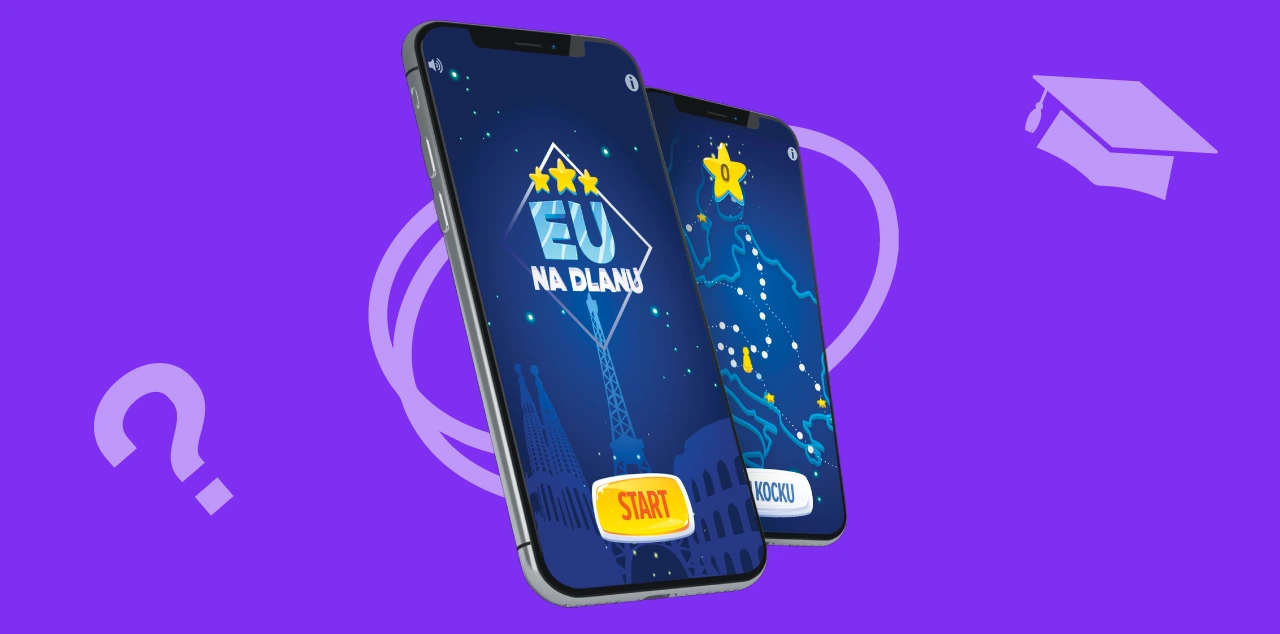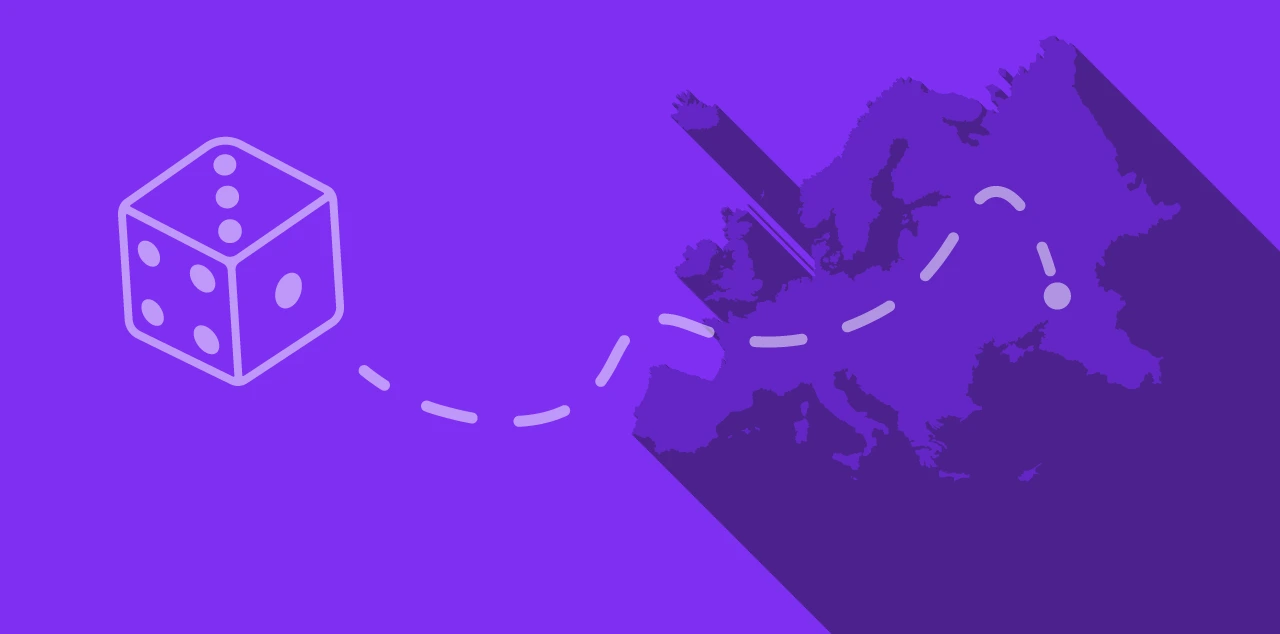EU na dlanu: A European Journey Through Questions & Prizes


How do you engage thousands of people during a pandemic - and get them to learn something in the process?
That was the challenge faced by the Delegation of the European Union to Montenegro and the EU Info Centre, as they sought new ways to mark Europe Day in 2020 and 2021. The solution: EU na dlanu, an online educational game that turned the European Union into a playful quiz map - available anytime, anywhere, on phone or desktop.
Developed by ZUNO Games, the quiz mixed curiosity, competition, and community support into a single experience. By the end of its second season, over 18,000 players had taken the challenge.

EU na dlanu was created for citizens of Montenegro of all ages - from high school students to older generations - with the aim of strengthening public knowledge about the EU, its institutions, and member countries.
The game was promoted as part of a wider Europe Day campaign, including online film festivals, youth events, and local media coverage. As a fully web-based game with simple registration, EU na dlanu was easy to access from any device - making it widely available to players across the country.
Players begin by rolling a virtual die, which determines the country they’ll "visit" on the EU map and the difficulty of the question they’ll receive. Each round presents one of six mini-quizzes, with topics ranging from:
The maximum score is 48 points per session. To qualify for the prize draw, players needed to score at least 28 points, with a new registration required each week to compete for new prizes.
The average game lasts around 15 minutes - just enough time to get a taste of Europe without leaving your screen.

The impact wasn’t just measured in points or prizes - the game became a digital bridge between citizens and the European Union during a time of social distance.
But EU na dlanu wasn’t just about learning it was also about giving back. With a prize fund of €5,000, the campaign supported local tourism and producers during a difficult economic period. Players competed for vacation vouchers worth €400, gift packs filled with Montenegrin products, and surprise prizes from EU member state embassies. Every winner also received a European Youth Card, while the prize draws - held weekly using Random.org - kept things fair, transparent, and exciting right to the final round.
While EU na dlanu looked like a game, it was part of a broader social initiative. In addition to educating players, the campaign supported Montenegrin tourism and agriculture by partnering with Ljetuj doma, Sjever.me, and local producers - proving that digital outreach can have real-world benefits.
Sometimes, the best way to bring Europe closer... is to roll the dice and let the questions lead the way.
